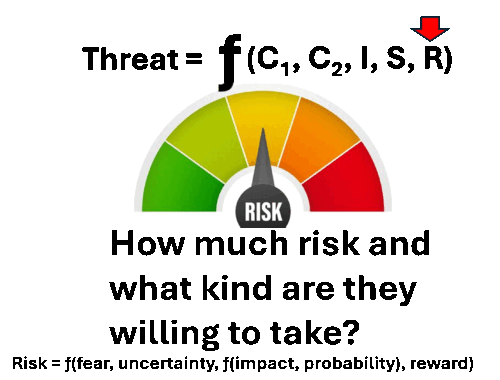
The Virtuous Republic, Part 1: What can we Learn From Attempts at Utopian SocietiesThe Virtuous Republic, Part 1: What can we Learn From Attempts at Utopian Societies
Abstract: History is littered with the remains of broken attempts at utopian societies. To the best of my knowledge, most have failed for one major reason. They rely on virtue, but do not build it into their societies. Utopian leaders often get caught up in their power and turn the utopia into a cult. Communism is perhaps the best example. Marx’s idea was a utopian society. It actually makes sense—if society and its leaders are virtuous. Likewise, literature is rife with utopian concepts and dreams. For the founding of the US Republic, Plato’s Atlantis and Francis Bacon’s New Atlantis are perhaps the most important. I suspect that all the founders were familiar with them. Yet they also understood virtue and that historically virtue is in short supply. That is why they designed the Republic with checks and balance designed to curb power. The question this series will explore is whether there can be a virtuous republic, or is humanity flawed and doomed to a series of failed societies?
The other night, I continued reading Doug Molitor’s Memoirs of a Time Traveler. Not fine literature, but a nice escapist read. In the future, a breakthrough in nanotechnology provides virtually everything or the remaining humans after a catastrophic event that wipes out nearly 90% of humanity. It is a utopian society in which everyone has power and society seems to work well, with few problems.
Seen through the lens of this seemingly functioning utopia, our society seems terribly flawed with corruption, fractures, and a seemingly flawed political system and virtually no virtue. But that begs the question, can virtue exist in a utopia? Let us set that aside for a moment, though.
The view of our society through the lens of a utopia had me awake quite a while during the night. That is when I remembered a book I read a few decades ago, Vril, The Coming Race. Sir Edward Bulwer-Lytton wrote this interesting book in 1871. The Vril society was underground and accidentally discovered by an explorer. Similar to Jules Verne’s Journey to the Center of the Earth, written in 1864. Remember, the Nazis subscribed to a hollow earth theory, based on legends of vril. Some researchers link Bulwer-Lytton to racist theories, Aryanism, which eventually led to Nazism.
Vril is part of a long tradition of utopian writings dating back Plato‘s concept of Atlantis and Francis Bacon’s New Atlantis. Note, Marx’s concept of communism is utopian, and probably based on this long tradition. Interestingly, Bulwer-Lytton said the society in the book had parapsychology that leveled society similar to that of the nanotechnology provided in Molitor’s book. Interestingly, Bacon relied on science and empiricism.
The funny thing about a utopian society is that it is based on and requires virtue. Virtually every attempt at a utopian society failed because of lack of virtue. They are based on operant conditioning for the mass, which does not apply to the leaders. This is the opposite of virtue. George Orwell, in Animal Farm, illustrated this. The funny thing is that while the US is not a utopia—perhaps the founders sought to create one without its pitfalls—we are seeing operant conditioning for the masses and the “leaders” are above it. In Vril, The Coming Race and Memoirs of a Time Traveler, the leaders were on an equal footing with the masses. The problems of Animal Farm did not exist in these stories.
Yet they exist in virtually all real societies. Those in charge have power over the other members of society. So what, if anything, do these utopian stories tell us?
- There needs to be some way to level the power differences between people in society.
- Political leaders need constraints on their ability to gain and use power and money. In some cases, the utopian society in the stories tied the politician’s wealth to societal wealth while in power.
- Politicians who violate the law and act according to their own benefit at the expense of society are vigorously punished.
Now I do not propose to organize a society like fringe philosophy/science fiction. But the three points above make some sense. This is especially true for the first bullet. Which is why we should look harder at Francis Bacon and New Atlantis. Bacon is sometimes called the father of the scientific method. His solution or the first bullet was science, not parapsychology or some other less relevant concept.
But is science for sale in today’s world? If so, who is buying it and why? If it is coopted, does that compromise the first bullet and undermine the second two bullets if politicians and corporate demagogues control science funding? Is virtue even alive today?





